Amending America: Building a More Perfect Union
Date: June 21 – 22, 2017
Time: 7pm – 9pm (June 21); 10:30am-9pm (June 22)
Location: National Archives Museum, Washington, DC 20408
As part of its Amending America initiative, the National Archives and Records Administration presents the National Conversation on Rights and Justice: Building a More Perfect Union at the National Archives Museum in Washington, DC, on June 21 – 22, 2017.
Join us as we debate some of the most critical issues facing our nation today with leaders from across the country discussing subjects ranging from national security to responsibilities of citizens to the court system and beyond. This event is the culmination of a six-part, multi-city series, including topics on Civil Rights and Individual Freedom, LGBTQ Human Rights and Civil Rights, Women’s Rights and Gender Equality, Immigration: Access and Barriers, and Educational Access and Equity.
Wednesday, June 21, 2017
7pm Keynote Remarks on “Civil Rights and the Role of an Impartial Judiciary”
- – Tanya Chutkan, U.S. District Judge for the District of Columbia
8pm Keynote Conversation on “Reflections on Civil and Human Rights Movements: From 1960 to Today”
- – Moderator: A’Lelia Bundles, Journalist and Author
- – Rep. Jim Clyburn, U.S. Representative for South Carolina’s 6th congressional district
- – Courtland Cox, Board President, SNCC Legacy Project
- – Derreck Kayongo, CEO of the National Civil and Human Rights Center
- – Joyce Ladner, American civil rights activist, author, civil servant, and sociologist
Thursday, June 22, 2017
10:30am “Individual Freedom and National Security in an Age of Terrorism”
- – Moderator: Ray Suarez, Journalist and Author
- – Jennifer Daskal, Associate Professor of Law at American University Washington College of Law
- – Paul Rosenzweig, Former Deputy Assistant Secretary for Policy in the Department of Homeland Security
- – Amie Stepanovich, U.S. Policy Manager at Access Now
1:30pm “Enlightened and Engaged: Education for Democracy?”
- – Moderator: Lauren Camera, Education Journalist, U.S. News and World Report
- – Peter Bonilla, Vice President of Programs, Foundation for Individual Rights in Education (FIRE)
- – Peggy S. Jackson, NBCT, NCSS President
- – Daniel J. McGrath, Chief of the Assessment Division Reporting and Dissemination Branch of the National Center for Education Statistics, U.S. Department of Education
- – Scott Warren, Chief Executive Officer of Generation Citizen
3pm “The Responsibility of Citizens in the Modern Era”
- – Moderator: Michel Martin, Journalist, NPR
- – David Azerrad, Director of the B. Kenneth Simon Center for Principles and Politics at The Heritage Foundation
- – Susan N. Herman, President of the American Civil Liberties Union
- – K. Sabeel Rahman, Assistant Professor of Law at Brooklyn Law School
- – Vincent Warren, Executive Director of the Center for Constitutional Rights
7pm Closing Keynote Conversation on “The United States of America: A Democratic Nation in an Open Global Society”
- – Moderator: Soledad O’Brien, Journalist and Author
- – William Cohen, Former Secretary of Defense
- – Ambassador Stuart W. Holliday, President and CEO of the Meridian International Center
- – Ambassador John Negroponte, Former Director of National Intelligence
Registration is now closed for this event.
About the Speakers
 David Azerrad is the AWC Family Foundation Fellow and the Director of the B. Kenneth Simon Center for Principles and Politics at the Heritage Foundation where he devotes his time and research to studying the American political tradition from the Founding until today. He also teaches classes on American conservative and progressive political thought at American University in Washington, D.C. His writings have appeared in various publications, including The Claremont Review of Books, The Weekly Standard, National Affairs, First Things, The Times (of London), Real Clear Politics, National Review Online, The Washington Times, The Federalist, Public Discourse, The National Interest, and Interpretation: A Journal of Political Philosophy. He has also appeared on national television in the US, Canada, and the UK. Azerrad received a doctoral degree in politics from the University of Dallas, where he wrote a dissertation on the foundations of John Locke’s political thought. He received an MA in political science from Carleton University in Ottawa and a BA in journalism and political science from Concordia University in Montreal.
David Azerrad is the AWC Family Foundation Fellow and the Director of the B. Kenneth Simon Center for Principles and Politics at the Heritage Foundation where he devotes his time and research to studying the American political tradition from the Founding until today. He also teaches classes on American conservative and progressive political thought at American University in Washington, D.C. His writings have appeared in various publications, including The Claremont Review of Books, The Weekly Standard, National Affairs, First Things, The Times (of London), Real Clear Politics, National Review Online, The Washington Times, The Federalist, Public Discourse, The National Interest, and Interpretation: A Journal of Political Philosophy. He has also appeared on national television in the US, Canada, and the UK. Azerrad received a doctoral degree in politics from the University of Dallas, where he wrote a dissertation on the foundations of John Locke’s political thought. He received an MA in political science from Carleton University in Ottawa and a BA in journalism and political science from Concordia University in Montreal.
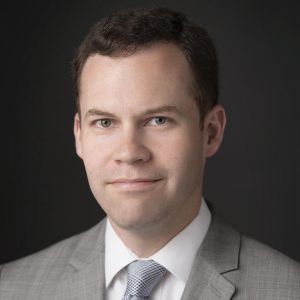 Peter Bonilla, a native of the Washington, D.C., area, has worked with the Foundation for Individual Rights in Education (FIRE) since 2008, and currently serves as the organization’s Vice President of Programs, directing several of its outreach and research initiatives as part of FIRE’s Speech, Outreach, Advocacy, and Research project, supported by a $2.5 million grant from the John Templeton Foundation. Peter comments frequently for radio, print, and television media, lectures on free speech and academic freedom issues to students and faculty around the country, and has written on higher education for numerous publications. Prior to joining FIRE, Peter was literary manager of Philadelphia’s InterAct Theatre Company, one of the country’s top theatres for the development and production of new politically and socially-themed plays. He is a graduate of the University of Pennsylvania, where he earned undergraduate degrees in theater arts and economics, and is a previous recipient of a fellowship in playwriting from the Pennsylvania Council on the Arts.
Peter Bonilla, a native of the Washington, D.C., area, has worked with the Foundation for Individual Rights in Education (FIRE) since 2008, and currently serves as the organization’s Vice President of Programs, directing several of its outreach and research initiatives as part of FIRE’s Speech, Outreach, Advocacy, and Research project, supported by a $2.5 million grant from the John Templeton Foundation. Peter comments frequently for radio, print, and television media, lectures on free speech and academic freedom issues to students and faculty around the country, and has written on higher education for numerous publications. Prior to joining FIRE, Peter was literary manager of Philadelphia’s InterAct Theatre Company, one of the country’s top theatres for the development and production of new politically and socially-themed plays. He is a graduate of the University of Pennsylvania, where he earned undergraduate degrees in theater arts and economics, and is a previous recipient of a fellowship in playwriting from the Pennsylvania Council on the Arts.
 Lauren Camera is an education reporter at U.S. News & World Report. She’s covered education policy and politics for a decade and has written for Education Week, The Hechinger Report, Congressional Quarterly, Roll Call, and the Chronicle of Higher Education. She was a 2013 Spencer Education Fellow at Columbia University’s School of Journalism, where she conducted a reporting project about the impact of the Obama administration’s competitive education grant, Race to the Top.
Lauren Camera is an education reporter at U.S. News & World Report. She’s covered education policy and politics for a decade and has written for Education Week, The Hechinger Report, Congressional Quarterly, Roll Call, and the Chronicle of Higher Education. She was a 2013 Spencer Education Fellow at Columbia University’s School of Journalism, where she conducted a reporting project about the impact of the Obama administration’s competitive education grant, Race to the Top.
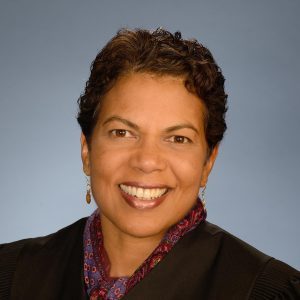 Judge Tanya Chutkan was appointed to the United States District Court for the District of Columbia in June 2014. Born in Kingston, Jamaica, she received her B.A. in Economics from George Washington University and her J.D. from the University of Pennsylvania Law School, where she was an Associate Editor of the Law Review and a Legal Writing Fellow. After law school, she worked in private practice for three years, then joined the District of Columbia Public Defender Service (“PDS”), where she worked as a trial attorney and supervisor. During her tenure at PDS, she argued several appellate cases and tried over 30 cases, including numerous serious felony matters. Eleven years later, she left PDS to join Boies, Schiller, & Flexner LLP, where she specialized in litigation and white collar criminal defense. During her 12 years at the firm, her clients included antitrust class action plaintiffs, as well as individual and corporate defendants involved in complex state and federal litigation. From 1996 – 2000 Judge Chutkan was a member of the Steering Committee for the Criminal Law and Individual Rights Section of the District of Columbia Bar. She is a frequent lecturer on trial techniques.
Judge Tanya Chutkan was appointed to the United States District Court for the District of Columbia in June 2014. Born in Kingston, Jamaica, she received her B.A. in Economics from George Washington University and her J.D. from the University of Pennsylvania Law School, where she was an Associate Editor of the Law Review and a Legal Writing Fellow. After law school, she worked in private practice for three years, then joined the District of Columbia Public Defender Service (“PDS”), where she worked as a trial attorney and supervisor. During her tenure at PDS, she argued several appellate cases and tried over 30 cases, including numerous serious felony matters. Eleven years later, she left PDS to join Boies, Schiller, & Flexner LLP, where she specialized in litigation and white collar criminal defense. During her 12 years at the firm, her clients included antitrust class action plaintiffs, as well as individual and corporate defendants involved in complex state and federal litigation. From 1996 – 2000 Judge Chutkan was a member of the Steering Committee for the Criminal Law and Individual Rights Section of the District of Columbia Bar. She is a frequent lecturer on trial techniques.
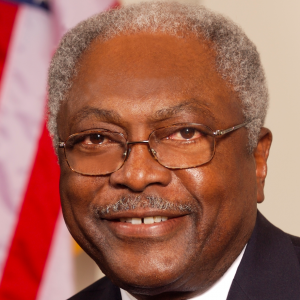 James E. (Jim) Clyburn is the Assistant Democratic Leader, the third-ranking Democrat, in the United States House of Representatives. When Jim Clyburn came to Congress in 1993, he was elected co-president of his freshman class and quickly rose through leadership ranks. He was elected Chairman of the Congressional Black Caucus in 1998 and Vice Chair of the House Democratic Caucus in 2002. Three years later he was unanimously elected Chair of the House Democratic Caucus, and when Democrats regained the House majority in 2006, Congressman Clyburn was elevated by his colleagues to House Majority Whip. As a national leader he has championed rural and economic development. Many of his initiatives have become law. His 10-20-30 federal funding formula was inserted into four sections of the American Recovery and Reinvestment Act. The formula directs 10 percent of appropriated funds to communities where 20 percent or more of the population have lived at or below the poverty level for the past 30 years. Clyburn’s article on the program was published in the Harvard Journal on Legislation. This year, the Republican Speaker of the House has supported the formula’s inclusion in several accounts of the House Appropriations bills. In 2011, Jim received the Distinguished Service Award from the National Rural Electric Cooperative Association for his legislation that established the Rural Energy Savings Program. That program allows electric cooperatives to make low-interest loans to their members to retrofit and weatherize their homes. These loans are then repaid through their monthly utility bills. Clyburn is a passionate supporter of historic preservation and restoration programs. His initiatives have restored scores of historic buildings and sites on the campuses of historically black colleges and universities. His legislation created the South Carolina National Heritage Corridor and the Gullah/Geechee Cultural Heritage Corridor. He authored legislation that elevated the Congaree National Monument to a National Park, and he proposed model legislation for President Obama’s proclamation which established the Reconstruction Era National Monument in South Carolina’s Low-Country. Jim Clyburn began his professional career as a public school teacher in Charleston, South Carolina. Before being elected to Congress he directed two community development programs, served on the staff of a South Carolina Governor, and ran a state agency under four South Carolina Governors – two Democrats and two Republicans. His memoir, Blessed Experiences: Genuinely Southern, Proudly Black, was published by the University of South Carolina Press in 2015. It has been described as a primer that should be read by every student interested in pursuing a career in public service. His humble beginnings in Sumter, South Carolina as the eldest son of an activist, fundamentalist minister and an independent, civic minded beautician grounded Congressman Clyburn securely in family, faith and public service. He was elected president of his NAACP youth chapter at 12 years old, he helped organize many civil rights marches and demonstrations as a student leader at South Carolina State College, and he even met his wife Emily in jail following a student demonstration. Jim and Emily England Clyburn have been married since June 1961. They are the parents of three daughters; Mignon, Jennifer Reed, and Angela Hannibal; two sons-in-law, Walter Reed and Cecil Hannibal; and four grandchildren, Walter A Clyburn Reed, Sydney Alexis Reed, Layla Joann Clyburn Hannibal, and Carter James Clyburn Hannibal.
James E. (Jim) Clyburn is the Assistant Democratic Leader, the third-ranking Democrat, in the United States House of Representatives. When Jim Clyburn came to Congress in 1993, he was elected co-president of his freshman class and quickly rose through leadership ranks. He was elected Chairman of the Congressional Black Caucus in 1998 and Vice Chair of the House Democratic Caucus in 2002. Three years later he was unanimously elected Chair of the House Democratic Caucus, and when Democrats regained the House majority in 2006, Congressman Clyburn was elevated by his colleagues to House Majority Whip. As a national leader he has championed rural and economic development. Many of his initiatives have become law. His 10-20-30 federal funding formula was inserted into four sections of the American Recovery and Reinvestment Act. The formula directs 10 percent of appropriated funds to communities where 20 percent or more of the population have lived at or below the poverty level for the past 30 years. Clyburn’s article on the program was published in the Harvard Journal on Legislation. This year, the Republican Speaker of the House has supported the formula’s inclusion in several accounts of the House Appropriations bills. In 2011, Jim received the Distinguished Service Award from the National Rural Electric Cooperative Association for his legislation that established the Rural Energy Savings Program. That program allows electric cooperatives to make low-interest loans to their members to retrofit and weatherize their homes. These loans are then repaid through their monthly utility bills. Clyburn is a passionate supporter of historic preservation and restoration programs. His initiatives have restored scores of historic buildings and sites on the campuses of historically black colleges and universities. His legislation created the South Carolina National Heritage Corridor and the Gullah/Geechee Cultural Heritage Corridor. He authored legislation that elevated the Congaree National Monument to a National Park, and he proposed model legislation for President Obama’s proclamation which established the Reconstruction Era National Monument in South Carolina’s Low-Country. Jim Clyburn began his professional career as a public school teacher in Charleston, South Carolina. Before being elected to Congress he directed two community development programs, served on the staff of a South Carolina Governor, and ran a state agency under four South Carolina Governors – two Democrats and two Republicans. His memoir, Blessed Experiences: Genuinely Southern, Proudly Black, was published by the University of South Carolina Press in 2015. It has been described as a primer that should be read by every student interested in pursuing a career in public service. His humble beginnings in Sumter, South Carolina as the eldest son of an activist, fundamentalist minister and an independent, civic minded beautician grounded Congressman Clyburn securely in family, faith and public service. He was elected president of his NAACP youth chapter at 12 years old, he helped organize many civil rights marches and demonstrations as a student leader at South Carolina State College, and he even met his wife Emily in jail following a student demonstration. Jim and Emily England Clyburn have been married since June 1961. They are the parents of three daughters; Mignon, Jennifer Reed, and Angela Hannibal; two sons-in-law, Walter Reed and Cecil Hannibal; and four grandchildren, Walter A Clyburn Reed, Sydney Alexis Reed, Layla Joann Clyburn Hannibal, and Carter James Clyburn Hannibal.
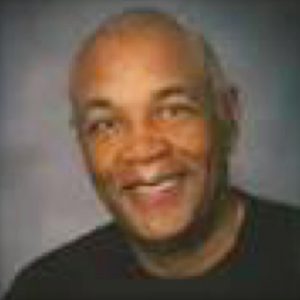 Courtland Cox spent his childhood between New York City and Trinidad. Education was important to his family, and they sent him to St. Helena’s Catholic School where for one year, he was the only Black student. When Cox arrived at Howard University in 1960, he joined the Nonviolent Action Group (NAG), already committed to fight segregation and white supremacy. Cox met classmates like Stokely Carmichael, Ed Brown, Michael Thelwell, Jean Wheeler and others as NAG became involved in sit-ins along Route 40, Freedom Rides, and demonstrations on Maryland’s Eastern Shore. In its early days, SNCC operated as a loose association of student groups, and Cox was one of NAG’s representative on SNCC’s coordinating council. The “interminable” SNCC meetings in Atlanta centered on figuring out how a situation could be changed instead of solely questioning why it existed. Cox began exploring strategies and tactics beyond protest. Like many in NAG, he was greatly influenced by Bayard Rustin, who came on and off Howard’s campus because of NAG’s activism, most notably in 1962 for a debate Malcolm X sponsored by a campus group Cox had helped organize: Project Awareness. Later, Cox became SNCC’s program coordinator, and in 1967 traveled to Stockholm to represent SNCC at the Bertrand Russell International War Crimes Tribunal. SNCC had come out against the Vietnam War in January 1966, because after years of organizing, they now questioned why young Black men should fight and die in Vietnam when they were denied first class citizenship and faced white supremacist violence at home. Cox remained committed to idea of economic empowerment. Black communities, he noted, whether in the Deep South or northern cities, lacked “any kind of economic infrastructure that could make a difference,” and Atlantic City had helped him realize that “you could not keep asking people … who were in fact benefiting from the status quo to change the status quo.” He saw possibility in building alliances across the Black Diaspora, and in 1974, he helped organize a Sixth Pan African Congress in Tanzania that brought together Black leaders from around the world to discuss the “rekindling of political understanding and cooperation among African people.” In 2010, Mr. Cox participated in the organizing of the SNCC Legacy Project and he served as the first President of its Board of Directors.
Courtland Cox spent his childhood between New York City and Trinidad. Education was important to his family, and they sent him to St. Helena’s Catholic School where for one year, he was the only Black student. When Cox arrived at Howard University in 1960, he joined the Nonviolent Action Group (NAG), already committed to fight segregation and white supremacy. Cox met classmates like Stokely Carmichael, Ed Brown, Michael Thelwell, Jean Wheeler and others as NAG became involved in sit-ins along Route 40, Freedom Rides, and demonstrations on Maryland’s Eastern Shore. In its early days, SNCC operated as a loose association of student groups, and Cox was one of NAG’s representative on SNCC’s coordinating council. The “interminable” SNCC meetings in Atlanta centered on figuring out how a situation could be changed instead of solely questioning why it existed. Cox began exploring strategies and tactics beyond protest. Like many in NAG, he was greatly influenced by Bayard Rustin, who came on and off Howard’s campus because of NAG’s activism, most notably in 1962 for a debate Malcolm X sponsored by a campus group Cox had helped organize: Project Awareness. Later, Cox became SNCC’s program coordinator, and in 1967 traveled to Stockholm to represent SNCC at the Bertrand Russell International War Crimes Tribunal. SNCC had come out against the Vietnam War in January 1966, because after years of organizing, they now questioned why young Black men should fight and die in Vietnam when they were denied first class citizenship and faced white supremacist violence at home. Cox remained committed to idea of economic empowerment. Black communities, he noted, whether in the Deep South or northern cities, lacked “any kind of economic infrastructure that could make a difference,” and Atlantic City had helped him realize that “you could not keep asking people … who were in fact benefiting from the status quo to change the status quo.” He saw possibility in building alliances across the Black Diaspora, and in 1974, he helped organize a Sixth Pan African Congress in Tanzania that brought together Black leaders from around the world to discuss the “rekindling of political understanding and cooperation among African people.” In 2010, Mr. Cox participated in the organizing of the SNCC Legacy Project and he served as the first President of its Board of Directors.
 From his very first days in Washington, Secretary William Cohen was singled out as a future American leader. In 1974, during his very first term in Congress, TIME magazine named him as one of “America’s 200 Future Leaders,” and the following year the US Junior Chamber of Commerce named him one of the “Ten Outstanding Young Men in America.” This reflected, in part, the national prominence Secretary Cohen attained as a freshman Republican Congressman who was tasked by the House Judiciary Committee to build, on national television, the evidentiary base for impeachment of President Nixon — and who then cast one of the critical votes to impeach. But it also reflected the recognition that the intellectual clout, integrity, independence, and public persuasiveness he demonstrated during the Watergate hearings portended a future without bounds on the national scene. In 1978, he was propelled into the Senate, defeating a highly respected incumbent. During his first weeks in the Senate, he was singled out to be chairman of two powerful subcommittees, the Armed Services Committee’s Seapower and Force Projection Subcommittee and the Governmental Affairs Committee’s Government Oversight Subcommittee. The former was responsible for tens of billions of acquisition dollars for naval vessels and long-range transport aircraft, as well as US security policy in East Asia, the Middle East and the Persian Gulf. The latter was responsible for reforming the procurement process for the entire Federal Government. As Chairman of the Senate Committee on Aging, Secretary Cohen led efforts to improve the efficiency of Medicare and other health care programs and was a central player in the health care reform debates of the 1990s. Secretary Cohen also was a member of the Select Committee on Intelligence for a decade, serving half that time as Vice Chairman, overseeing a large budget involving some of the Nation’s most advanced technology. Secretary Cohen’s international expertise was recognized by his selection to the Board of Directors of the Council on Foreign Relations from 1989 to 1997, whose Middle East Study Group he chaired. He has chaired and served on numerous other study groups and committees at the Center for Strategic and International Studies, the School for Advanced International Studies, and the Brookings Institute. He established and led US delegations to the annual Pacific Dialogue in Kuala Lumpur, as well as the American-Arab Dialogue in Cairo, both regional conferences on economic and security issues. Secretary Cohen’s service in the House and Senate was marked by electoral success, as well. He was undefeated in six consecutive Maine elections, winning each by wide margins. In 1996, frustrated with partisan gridlock, Secretary Cohen announced he would return to private life to promote international business and, through his writings and the media, a more thoughtful public discourse on national political issues. He also launched the William S. Cohen Center for International Policy and Commerce at the University of Maine. President Clinton changed these plans, however, in late 1996, when he asked Secretary Cohen to lead the Department of Defense, the first time in modern US history when a President has chosen an elected official from the other party to be a member of his cabinet. Secretary Cohen succeeded in modernizing the military and maintaining its readiness to fight; reversing recruitment and retention problems by enhancing pay and other benefits; and strengthening security relationships with countries around the world in order to reorient them from the Cold War to the challenges of a new era. Under his leadership, the US military conducted the largest air warfare campaign since World War II, in Serbia and Kosovo, and conducted other military operations on every continent. During his tenure, Secretary Cohen held substantive meetings with foreign leaders in over 60 countries. A published author of thirteen works of nonfiction, fiction, and poetry; a futurist with degrees in classical Latin and Greek literature; the son of a working-class family who rose to the highest levels in government, it was natural for the Christian Science Monitor to call him “a true Renaissance Man. He is also a World Affairs Analyst for BBC News providing analysis and commentary on major domestic and international news stories on a regular basis. After 31 years of public service, Secretary Cohen leaves behind a record of unparalleled accomplishment, integrity, and respect, and takes with him unrivaled knowledge, reputation, and relationships, across America and around the globe.
From his very first days in Washington, Secretary William Cohen was singled out as a future American leader. In 1974, during his very first term in Congress, TIME magazine named him as one of “America’s 200 Future Leaders,” and the following year the US Junior Chamber of Commerce named him one of the “Ten Outstanding Young Men in America.” This reflected, in part, the national prominence Secretary Cohen attained as a freshman Republican Congressman who was tasked by the House Judiciary Committee to build, on national television, the evidentiary base for impeachment of President Nixon — and who then cast one of the critical votes to impeach. But it also reflected the recognition that the intellectual clout, integrity, independence, and public persuasiveness he demonstrated during the Watergate hearings portended a future without bounds on the national scene. In 1978, he was propelled into the Senate, defeating a highly respected incumbent. During his first weeks in the Senate, he was singled out to be chairman of two powerful subcommittees, the Armed Services Committee’s Seapower and Force Projection Subcommittee and the Governmental Affairs Committee’s Government Oversight Subcommittee. The former was responsible for tens of billions of acquisition dollars for naval vessels and long-range transport aircraft, as well as US security policy in East Asia, the Middle East and the Persian Gulf. The latter was responsible for reforming the procurement process for the entire Federal Government. As Chairman of the Senate Committee on Aging, Secretary Cohen led efforts to improve the efficiency of Medicare and other health care programs and was a central player in the health care reform debates of the 1990s. Secretary Cohen also was a member of the Select Committee on Intelligence for a decade, serving half that time as Vice Chairman, overseeing a large budget involving some of the Nation’s most advanced technology. Secretary Cohen’s international expertise was recognized by his selection to the Board of Directors of the Council on Foreign Relations from 1989 to 1997, whose Middle East Study Group he chaired. He has chaired and served on numerous other study groups and committees at the Center for Strategic and International Studies, the School for Advanced International Studies, and the Brookings Institute. He established and led US delegations to the annual Pacific Dialogue in Kuala Lumpur, as well as the American-Arab Dialogue in Cairo, both regional conferences on economic and security issues. Secretary Cohen’s service in the House and Senate was marked by electoral success, as well. He was undefeated in six consecutive Maine elections, winning each by wide margins. In 1996, frustrated with partisan gridlock, Secretary Cohen announced he would return to private life to promote international business and, through his writings and the media, a more thoughtful public discourse on national political issues. He also launched the William S. Cohen Center for International Policy and Commerce at the University of Maine. President Clinton changed these plans, however, in late 1996, when he asked Secretary Cohen to lead the Department of Defense, the first time in modern US history when a President has chosen an elected official from the other party to be a member of his cabinet. Secretary Cohen succeeded in modernizing the military and maintaining its readiness to fight; reversing recruitment and retention problems by enhancing pay and other benefits; and strengthening security relationships with countries around the world in order to reorient them from the Cold War to the challenges of a new era. Under his leadership, the US military conducted the largest air warfare campaign since World War II, in Serbia and Kosovo, and conducted other military operations on every continent. During his tenure, Secretary Cohen held substantive meetings with foreign leaders in over 60 countries. A published author of thirteen works of nonfiction, fiction, and poetry; a futurist with degrees in classical Latin and Greek literature; the son of a working-class family who rose to the highest levels in government, it was natural for the Christian Science Monitor to call him “a true Renaissance Man. He is also a World Affairs Analyst for BBC News providing analysis and commentary on major domestic and international news stories on a regular basis. After 31 years of public service, Secretary Cohen leaves behind a record of unparalleled accomplishment, integrity, and respect, and takes with him unrivaled knowledge, reputation, and relationships, across America and around the globe.
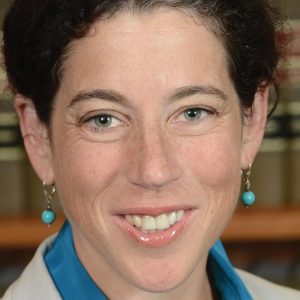 Jennifer Daskal is an Associate Professor of Law at American University Washington College of Law, where she teaches and writes in the fields of criminal, national security, and constitutional law. She also is a 2016-2017 Open Society Institute Fellow, working on issues related to privacy, surveillance, and law enforcement access to data across borders. From 2009-2011, Daskal was counsel to the Assistant Attorney General for National Security at the Department of Justice. Previously, Daskal was senior counterterrorism counsel at Human Rights Watch, worked as a staff attorney for the Public Defender Service for the District of Columbia, and clerked for the Honorable Jed S. Rakoff. Daskal is a graduate of Brown University, Harvard Law School, and Cambridge University, where she was a Marshall Scholar. Her scholarship has appeared in the Yale Law Journal, Cornell Law Review, University of Pennsylvania Law Review, and Journal of National Security Law and Policy, among other places. She has published op-eds in the New York Times, Washington Post, and International Herald Tribune, and has appeared on numerous media outlets, including MSNBC, NPR, NBC Nightly News, BBC, and C-Span. She is an Executive Editor of and regular contributor to the Just Security blog.
Jennifer Daskal is an Associate Professor of Law at American University Washington College of Law, where she teaches and writes in the fields of criminal, national security, and constitutional law. She also is a 2016-2017 Open Society Institute Fellow, working on issues related to privacy, surveillance, and law enforcement access to data across borders. From 2009-2011, Daskal was counsel to the Assistant Attorney General for National Security at the Department of Justice. Previously, Daskal was senior counterterrorism counsel at Human Rights Watch, worked as a staff attorney for the Public Defender Service for the District of Columbia, and clerked for the Honorable Jed S. Rakoff. Daskal is a graduate of Brown University, Harvard Law School, and Cambridge University, where she was a Marshall Scholar. Her scholarship has appeared in the Yale Law Journal, Cornell Law Review, University of Pennsylvania Law Review, and Journal of National Security Law and Policy, among other places. She has published op-eds in the New York Times, Washington Post, and International Herald Tribune, and has appeared on numerous media outlets, including MSNBC, NPR, NBC Nightly News, BBC, and C-Span. She is an Executive Editor of and regular contributor to the Just Security blog.
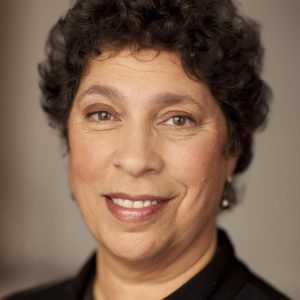 Susan N. Herman was elected President of the American Civil Liberties Union in October 2008 after having served on the ACLU Board of Directors, on its Executive Committee, and as General Counsel. As Centennial Professor of Law at Brooklyn Law School, she teaches courses in Criminal Law and Procedure and Constitutional Law, and seminars on Law and Literature, and Terrorism and Civil Liberties. She writes extensively on constitutional and criminal procedure topics for legal and non-legal publications, ranging from law reviews and books to popular press and on-line publications. Her most recent book, Taking Liberties: The War on Terror and the Erosion of American Democracy, published by Oxford University Press in October 2011 (updated paperback edition published in 2014), is the winner of the 2012 Roy C. Palmer Civil Liberties Prize. Other publications include two books, Terrorism, Government, and Law: National Authority and Local Autonomy in the War on Terror, editor and co-author with Paul Finkelman (Praeger Security International 2008) and The Right to a Speedy and Public Trial (Praeger 2006) (part of a series on the Constitution), and law review articles including The USA PATRIOT Act and the Submajoritarian Fourth Amendment, 41 Harv. Civ. Rts.-Civ. Lib. L. Rev. 67 (2006). Herman has discussed constitutional law issues on radio, including a variety of NPR shows; on television, including programs on PBS, CSPAN, NBC, MSNBC and a series of appearances on the Today in New York show; and in print media including Newsday and the New York Times. In addition, she has been a frequent speaker at academic conferences and continuing legal education events organized by groups such as the Federal Judicial Center and the American Bar Association, lecturing and conducting workshops for various groups of judges and lawyers, and at non-legal events, including speeches at the U.S. Army War College and many other venues. She has also participated in Supreme Court litigation, writing and collaborating on amicus curiae briefs for the ACLU on a range of constitutional criminal procedure issues, most recently in the case of Riley v. California (cell phone privacy), and has represented the ACLU at multiple meetings at the Senate, White House, and at events of ACLU affiliates and many other organizations. Herman received a B.A. from Barnard College and a J.D. from New York University School of Law, where she was a Note and Comment Editor on the N.Y.U. Law Review. Before entering teaching, Professor Herman was Pro Se Law Clerk for the United States Court of Appeals for the Second Circuit, and Staff Attorney and then Associate Director of Prisoners’ Legal Services of New York. In her spare time, she sings with the Riverside Choral Society.
Susan N. Herman was elected President of the American Civil Liberties Union in October 2008 after having served on the ACLU Board of Directors, on its Executive Committee, and as General Counsel. As Centennial Professor of Law at Brooklyn Law School, she teaches courses in Criminal Law and Procedure and Constitutional Law, and seminars on Law and Literature, and Terrorism and Civil Liberties. She writes extensively on constitutional and criminal procedure topics for legal and non-legal publications, ranging from law reviews and books to popular press and on-line publications. Her most recent book, Taking Liberties: The War on Terror and the Erosion of American Democracy, published by Oxford University Press in October 2011 (updated paperback edition published in 2014), is the winner of the 2012 Roy C. Palmer Civil Liberties Prize. Other publications include two books, Terrorism, Government, and Law: National Authority and Local Autonomy in the War on Terror, editor and co-author with Paul Finkelman (Praeger Security International 2008) and The Right to a Speedy and Public Trial (Praeger 2006) (part of a series on the Constitution), and law review articles including The USA PATRIOT Act and the Submajoritarian Fourth Amendment, 41 Harv. Civ. Rts.-Civ. Lib. L. Rev. 67 (2006). Herman has discussed constitutional law issues on radio, including a variety of NPR shows; on television, including programs on PBS, CSPAN, NBC, MSNBC and a series of appearances on the Today in New York show; and in print media including Newsday and the New York Times. In addition, she has been a frequent speaker at academic conferences and continuing legal education events organized by groups such as the Federal Judicial Center and the American Bar Association, lecturing and conducting workshops for various groups of judges and lawyers, and at non-legal events, including speeches at the U.S. Army War College and many other venues. She has also participated in Supreme Court litigation, writing and collaborating on amicus curiae briefs for the ACLU on a range of constitutional criminal procedure issues, most recently in the case of Riley v. California (cell phone privacy), and has represented the ACLU at multiple meetings at the Senate, White House, and at events of ACLU affiliates and many other organizations. Herman received a B.A. from Barnard College and a J.D. from New York University School of Law, where she was a Note and Comment Editor on the N.Y.U. Law Review. Before entering teaching, Professor Herman was Pro Se Law Clerk for the United States Court of Appeals for the Second Circuit, and Staff Attorney and then Associate Director of Prisoners’ Legal Services of New York. In her spare time, she sings with the Riverside Choral Society.
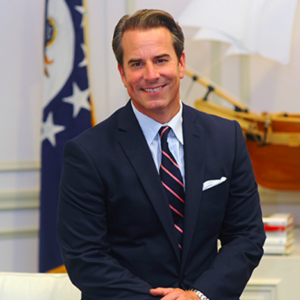 Ambassador Stuart Holliday is President and CEO of Meridian International Center, a leading non-partisan institution that seeks to advance global security and prosperity through effective leadership and diplomacy. Ambassador Holliday served as United States Ambassador for Special Political Affairs at the United Nations from 2003 to 2005. Holliday’s primary duties involved representing the United States on issues in the U.N. Security Council including U.S. policy on U.N. Peacekeeping, Sanctions, and Counterterrorism programs. Prior to serving at the United Nations, Holliday was Coordinator (Assistant Secretary) of the U.S. State Department’s Bureau of International Information Programs and Principal Deputy Assistant Secretary for Public Affairs. From 2000 to 2001, he was Special Assistant to the President and Associate Director of Presidential Personnel at the White House. At the White House, he advised the President on appointments to the State Department, the Defense Department, the Veterans Department, FEMA, NASA, OPIC, Peace Corps, USAID and Ambassadorships. Following the attacks of September 11, Holliday was tasked by the President’s Chief of Staff to work with government agencies to staff the first Office of Homeland Security at the White House. Holliday served on active and reserve duty as an Officer in the United States Navy (Intelligence) from 1988 until 1995 and was recalled to active duty for Operation Desert Storm. He is a recipient of the Joint Service Commendation Medal and other awards. He obtained his B.S.F.S. (International Affairs) from Georgetown University and his M.A. (International Affairs) from the London School of Economics and Political Science.
Ambassador Stuart Holliday is President and CEO of Meridian International Center, a leading non-partisan institution that seeks to advance global security and prosperity through effective leadership and diplomacy. Ambassador Holliday served as United States Ambassador for Special Political Affairs at the United Nations from 2003 to 2005. Holliday’s primary duties involved representing the United States on issues in the U.N. Security Council including U.S. policy on U.N. Peacekeeping, Sanctions, and Counterterrorism programs. Prior to serving at the United Nations, Holliday was Coordinator (Assistant Secretary) of the U.S. State Department’s Bureau of International Information Programs and Principal Deputy Assistant Secretary for Public Affairs. From 2000 to 2001, he was Special Assistant to the President and Associate Director of Presidential Personnel at the White House. At the White House, he advised the President on appointments to the State Department, the Defense Department, the Veterans Department, FEMA, NASA, OPIC, Peace Corps, USAID and Ambassadorships. Following the attacks of September 11, Holliday was tasked by the President’s Chief of Staff to work with government agencies to staff the first Office of Homeland Security at the White House. Holliday served on active and reserve duty as an Officer in the United States Navy (Intelligence) from 1988 until 1995 and was recalled to active duty for Operation Desert Storm. He is a recipient of the Joint Service Commendation Medal and other awards. He obtained his B.S.F.S. (International Affairs) from Georgetown University and his M.A. (International Affairs) from the London School of Economics and Political Science.
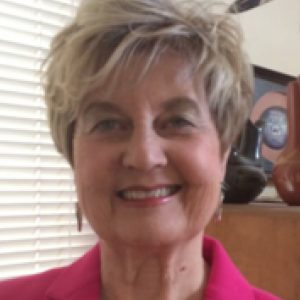 Peggy S. Jackson‘s experiences as a teacher of AP U.S. Government and Politics for 13 of her 35 teaching years gave her the opportunity to also be an adjunct for a local community college teaching Political Science and Macroeconomics. As an alumnae of the Supreme Court Teacher Institute, her passion and love of the U. S. Constitution led her to receive a James Madison Fellowship that provided the opportunity for study at Georgetown University and to obtain an MA in Political Science. She served as one of the original curriculum developers for Justice O’Connor for Our Courts, now iCivics. She was the 2010 New Mexico Teacher of the Year, has served on the NCSS Board of Directors, first in her role as House of Delegates Steering Committee Chair (2007-08), and subsequently for a full term 2010-2013, and now as President. In New Mexico, Peggy’s advocacy efforts include positions as Vice President in the NBCT NM Network, and as Board Member and Past President of the New Mexico Council for the Social Studies (NMCSS). She is a past member of the FASSE board and past member of the original Rho Kappa National Social Studies Honor Society Advisory Committee, as well as the Audit and Finance Committees of NCSS, giving her valuable NCSS experience. Peggy advocates in her state legislature as well as Congress with NM Senators Udall and Heinrich for funding for the social studies, and particularly champions her love of civic learning. Peggy, an AYA Social Studies NBCT, presently works for several districts in NM as a Candidate Support Provider for National Board Certified Teacher Candidates in her state. She has reviewed proposals for many NCSS Conferences, has also presented at state conferences, and at NCSS on the subject of “The Supreme Court” and the National Board Certification process. As a native Texan, she continues to also belong to Texas Council for the Social Studies (TCSS).
Peggy S. Jackson‘s experiences as a teacher of AP U.S. Government and Politics for 13 of her 35 teaching years gave her the opportunity to also be an adjunct for a local community college teaching Political Science and Macroeconomics. As an alumnae of the Supreme Court Teacher Institute, her passion and love of the U. S. Constitution led her to receive a James Madison Fellowship that provided the opportunity for study at Georgetown University and to obtain an MA in Political Science. She served as one of the original curriculum developers for Justice O’Connor for Our Courts, now iCivics. She was the 2010 New Mexico Teacher of the Year, has served on the NCSS Board of Directors, first in her role as House of Delegates Steering Committee Chair (2007-08), and subsequently for a full term 2010-2013, and now as President. In New Mexico, Peggy’s advocacy efforts include positions as Vice President in the NBCT NM Network, and as Board Member and Past President of the New Mexico Council for the Social Studies (NMCSS). She is a past member of the FASSE board and past member of the original Rho Kappa National Social Studies Honor Society Advisory Committee, as well as the Audit and Finance Committees of NCSS, giving her valuable NCSS experience. Peggy advocates in her state legislature as well as Congress with NM Senators Udall and Heinrich for funding for the social studies, and particularly champions her love of civic learning. Peggy, an AYA Social Studies NBCT, presently works for several districts in NM as a Candidate Support Provider for National Board Certified Teacher Candidates in her state. She has reviewed proposals for many NCSS Conferences, has also presented at state conferences, and at NCSS on the subject of “The Supreme Court” and the National Board Certification process. As a native Texan, she continues to also belong to Texas Council for the Social Studies (TCSS).
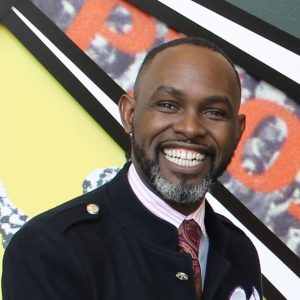 Derreck Kayongo was born in Kampala, Uganda just before General Idi Amin Dada seized power in a military coup. The new regime became known for its brutality, and today Idi Amin is one of history’s most notorious dictators. As violence spread through the country and civil war erupted, Kayongo and his family became refugees in Kenya. He later immigrated to America to attend university. Today, he is a successful entrepreneur and human rights innovator. Though most well known as a 2011 CNN Hero and founder of the Global Soap Project, Kayongo is a renowned expert in environmental sustainability and global health, as well as the current CEO of the National Center for Civil and Human Rights in Atlanta, Georgia. In 2016 the Georgia State Senate passed a resolution recognizing Kayongo’s incredible journey from refugee to CEO.
Derreck Kayongo was born in Kampala, Uganda just before General Idi Amin Dada seized power in a military coup. The new regime became known for its brutality, and today Idi Amin is one of history’s most notorious dictators. As violence spread through the country and civil war erupted, Kayongo and his family became refugees in Kenya. He later immigrated to America to attend university. Today, he is a successful entrepreneur and human rights innovator. Though most well known as a 2011 CNN Hero and founder of the Global Soap Project, Kayongo is a renowned expert in environmental sustainability and global health, as well as the current CEO of the National Center for Civil and Human Rights in Atlanta, Georgia. In 2016 the Georgia State Senate passed a resolution recognizing Kayongo’s incredible journey from refugee to CEO.
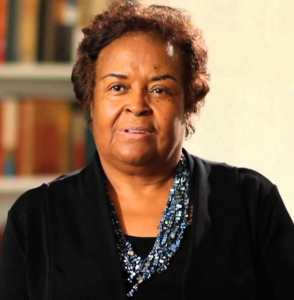 Sociologist Joyce Ladner’s career has been shaped through her first hand involvement with the civil rights movement in Mississippi and as a staff member that organized the March on Washington in 1963. She worked alongside Bayard Rustin and other civil rights leaders. In 1963 she was jailed for a week for attempting to integrate the all-white Galloway Methodist Church in Jackson, Mississippi. She is a native Mississippian and began her fight for social justice as a teenager when she helped organize an NAACP Youth Chapter in her hometown. She was expelled from Jackson State College in in Mississippi for organizing a civil rights protest. She was a friend and worked with slain civil rights leader Medgar Evers, as well as civil rights pioneers Fannie Lou Hamer and Ella Baker. As a field secretary for the Student Nonviolent Coordinating Committee (SNCC), Ladner was on the front lines of most of the major civil rights protests in the sixties including Greenwood, Birmingham, Albany, Selma and other dangerous areas and was on the stage when Dr. Martin Luther King gave his “I Have A Dream” speech. An eminent sociologist, Ladner has studied and interpreted the intersectionality of race, gender and class. Her book, Tomorrow’s Tomorrow: The Black Woman was the first book published in African American Women’s Studies and is now an American classic. Her book, The Death of White Sociology” was a landmark work that challenged the value neutrality of mainstream sociology. She has published five additional books and numerous articles. Joyce Ladner was a professor of sociology, provost and interim president at Howard University. She was on the District of Columbia Financial Control Board, and a Senior Fellow at the Brookings Institution. She studied the roles of Tanzanian women in nation building and she has lived in Dakar, Senegal as well. She has published seven books and numerous articles. Joyce Ladner earned a B.A. from Tougaloo College and a Ph.D. from Washington University, St. Louis. Joyce Ladner is completing her memoir titled Standing in the Gap: A Memoir of Resistance, Rebirth and Redemption that captures the spirit of her 1960s generation of SNCC workers that challenged segregation and discrimination in the South, and changed the face of America.
Sociologist Joyce Ladner’s career has been shaped through her first hand involvement with the civil rights movement in Mississippi and as a staff member that organized the March on Washington in 1963. She worked alongside Bayard Rustin and other civil rights leaders. In 1963 she was jailed for a week for attempting to integrate the all-white Galloway Methodist Church in Jackson, Mississippi. She is a native Mississippian and began her fight for social justice as a teenager when she helped organize an NAACP Youth Chapter in her hometown. She was expelled from Jackson State College in in Mississippi for organizing a civil rights protest. She was a friend and worked with slain civil rights leader Medgar Evers, as well as civil rights pioneers Fannie Lou Hamer and Ella Baker. As a field secretary for the Student Nonviolent Coordinating Committee (SNCC), Ladner was on the front lines of most of the major civil rights protests in the sixties including Greenwood, Birmingham, Albany, Selma and other dangerous areas and was on the stage when Dr. Martin Luther King gave his “I Have A Dream” speech. An eminent sociologist, Ladner has studied and interpreted the intersectionality of race, gender and class. Her book, Tomorrow’s Tomorrow: The Black Woman was the first book published in African American Women’s Studies and is now an American classic. Her book, The Death of White Sociology” was a landmark work that challenged the value neutrality of mainstream sociology. She has published five additional books and numerous articles. Joyce Ladner was a professor of sociology, provost and interim president at Howard University. She was on the District of Columbia Financial Control Board, and a Senior Fellow at the Brookings Institution. She studied the roles of Tanzanian women in nation building and she has lived in Dakar, Senegal as well. She has published seven books and numerous articles. Joyce Ladner earned a B.A. from Tougaloo College and a Ph.D. from Washington University, St. Louis. Joyce Ladner is completing her memoir titled Standing in the Gap: A Memoir of Resistance, Rebirth and Redemption that captures the spirit of her 1960s generation of SNCC workers that challenged segregation and discrimination in the South, and changed the face of America.
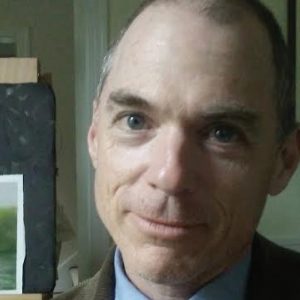 Daniel J. McGrath is chief of the Assessment Division Reporting and Dissemination Branch of the National Center for Education Statistics (NCES), U.S. Department of Education. The NCES Assessment Division reports for the nation on the progress of students and adults across a range subject areas. Assessments include the National Assessment of Educational Progress (NAEP, also known as the Nation’s Report Card), which is the nation’s largest ongoing assessment of student knowledge and skills in a range of subjects, the Program for International Student Assessment (PISA), the Trends in International Mathematics and Science Study (TIMSS), and the Program for the International Assessment of Adult Competencies (PIAAC), among others. Prior to joining the National Center for Education Statistics, Dr. McGrath was a Principal Research Analyst at the American Institutes for Research. He did his postdoctoral training at the Consortium on Human Development at the University of North Carolina-Chapel Hill. He has a Ph.D. in education from the University of Pennsylvania, an M.A.T. in teaching physics from Union College, and an Sc.B. in mechanical engineering from Brown University.
Daniel J. McGrath is chief of the Assessment Division Reporting and Dissemination Branch of the National Center for Education Statistics (NCES), U.S. Department of Education. The NCES Assessment Division reports for the nation on the progress of students and adults across a range subject areas. Assessments include the National Assessment of Educational Progress (NAEP, also known as the Nation’s Report Card), which is the nation’s largest ongoing assessment of student knowledge and skills in a range of subjects, the Program for International Student Assessment (PISA), the Trends in International Mathematics and Science Study (TIMSS), and the Program for the International Assessment of Adult Competencies (PIAAC), among others. Prior to joining the National Center for Education Statistics, Dr. McGrath was a Principal Research Analyst at the American Institutes for Research. He did his postdoctoral training at the Consortium on Human Development at the University of North Carolina-Chapel Hill. He has a Ph.D. in education from the University of Pennsylvania, an M.A.T. in teaching physics from Union College, and an Sc.B. in mechanical engineering from Brown University.
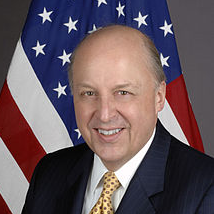 Former Ambassador John D. Negroponte was sworn in as the first Director of National Intelligence (DNI) on April 21, 2005. Previously, he had been serving as United States Ambassador to Iraq since June 28, 2004. From September 18, 2001, until his appointment to Iraq, Ambassador Negroponte served as the United States Permanent Representative to the United Nations. From 1997 to 2001, Ambassador Negroponte was employed in the private sector as Executive Vice President for Global Markets of The McGraw-Hill Companies in New York. From 1960 to 1997, Ambassador Negroponte was a member of the Career Foreign Service. He served at eight different Foreign Service posts in Asia, Europe and Latin America; and he also held important positions at the State Department and the White House. Among his assignments, Ambassador Negroponte was Ambassador to Honduras (1981-1985); Assistant Secretary of State for Oceans and International Environmental and Scientific Affairs (1985-1987); Deputy Assistant to the President for National Security Affairs (1987-1989); Ambassador to Mexico (1989-1993); and Ambassador to the Philippines (1993-96). Ambassador Negroponte is a Member of the Council on Foreign Relations and the American Academy of Diplomacy. He is a former Chairman of the French-American Foundation. Ambassador Negroponte was born July 21, 1939 in London. He received his Bachelor of Arts from Yale University in 1960. He and his wife, Diana, have five children.
Former Ambassador John D. Negroponte was sworn in as the first Director of National Intelligence (DNI) on April 21, 2005. Previously, he had been serving as United States Ambassador to Iraq since June 28, 2004. From September 18, 2001, until his appointment to Iraq, Ambassador Negroponte served as the United States Permanent Representative to the United Nations. From 1997 to 2001, Ambassador Negroponte was employed in the private sector as Executive Vice President for Global Markets of The McGraw-Hill Companies in New York. From 1960 to 1997, Ambassador Negroponte was a member of the Career Foreign Service. He served at eight different Foreign Service posts in Asia, Europe and Latin America; and he also held important positions at the State Department and the White House. Among his assignments, Ambassador Negroponte was Ambassador to Honduras (1981-1985); Assistant Secretary of State for Oceans and International Environmental and Scientific Affairs (1985-1987); Deputy Assistant to the President for National Security Affairs (1987-1989); Ambassador to Mexico (1989-1993); and Ambassador to the Philippines (1993-96). Ambassador Negroponte is a Member of the Council on Foreign Relations and the American Academy of Diplomacy. He is a former Chairman of the French-American Foundation. Ambassador Negroponte was born July 21, 1939 in London. He received his Bachelor of Arts from Yale University in 1960. He and his wife, Diana, have five children.
 Soledad O’Brien is an award-winning journalist, speaker, author and philanthropist. She is CEO of the Starfish Media Group, a multi-platform media production company dedicated to telling empowering and authentic stories on range of social issues. O’Brien’s anchors and produces the Heart Television political magazine program “Matter of Fact with Soledad O’Brien.” She also reports regularly for HBO’s “Real Sports with Bryant Gumbel” and PBS NewsHour. She has appeared as an anchor or contributor on all three networks, is Philanthropy Editor of Worth Magazine and is a frequent author of of op-ed pieces for publications like the New York Daily News and the Huffington Post. O’Brien, who was anchor of two CNN morning news programs and their documentary unit, created the “In America” documentary series. “Black in America” and “Latino in America” which continue to be produced under SMG and are subjects of an annual speaking tour. She also speaks on a variety of social issues at college campuses and corporate events. Earlier in her career, O’Brien co-anchored on “Weekend Today”, and contributed segments to the “Today” show and “NBC Nightly News.” In 2003, O’Brien transitioned to CNN, where she was the face of CNN’s morning news shows for many years. O’Brien’s coverage three Emmy awards. Her coverage of Hurricane Katrina earned her and CNN a George Foster Peabody Award. She also received another Peabody Award for her coverage of the BP Gulf Coast Oil Spill. Her reporting on the Southeast Asia tsunami garnered CNN an Alfred I. DuPont Award. She is also the author of two books, her critically acclaimed memoir “The Next Big Story” and “Latino in America.” O’Brien was named journalist of the year by the National Association of Black Journalists and one of Newsweek magazine’s “10 People who Make America Great.” In 2013, O’Brien taught at Harvard University as a Distinguished Fellow and was appointed to the board of directors of the Foundation for the National Archives. In 2015, O’Brien joined the RAND Corporation’s Board of Trustees. In the wake of Hurricane Katrina, O’Brien and her husband, Brad, created the Soledad O’Brien & Brad Raymond Starfish Foundation to help young women get to and through college. This year, they will provide funding to 25 deserving young women. O’Brien lives in New York with her husband and four children.
Soledad O’Brien is an award-winning journalist, speaker, author and philanthropist. She is CEO of the Starfish Media Group, a multi-platform media production company dedicated to telling empowering and authentic stories on range of social issues. O’Brien’s anchors and produces the Heart Television political magazine program “Matter of Fact with Soledad O’Brien.” She also reports regularly for HBO’s “Real Sports with Bryant Gumbel” and PBS NewsHour. She has appeared as an anchor or contributor on all three networks, is Philanthropy Editor of Worth Magazine and is a frequent author of of op-ed pieces for publications like the New York Daily News and the Huffington Post. O’Brien, who was anchor of two CNN morning news programs and their documentary unit, created the “In America” documentary series. “Black in America” and “Latino in America” which continue to be produced under SMG and are subjects of an annual speaking tour. She also speaks on a variety of social issues at college campuses and corporate events. Earlier in her career, O’Brien co-anchored on “Weekend Today”, and contributed segments to the “Today” show and “NBC Nightly News.” In 2003, O’Brien transitioned to CNN, where she was the face of CNN’s morning news shows for many years. O’Brien’s coverage three Emmy awards. Her coverage of Hurricane Katrina earned her and CNN a George Foster Peabody Award. She also received another Peabody Award for her coverage of the BP Gulf Coast Oil Spill. Her reporting on the Southeast Asia tsunami garnered CNN an Alfred I. DuPont Award. She is also the author of two books, her critically acclaimed memoir “The Next Big Story” and “Latino in America.” O’Brien was named journalist of the year by the National Association of Black Journalists and one of Newsweek magazine’s “10 People who Make America Great.” In 2013, O’Brien taught at Harvard University as a Distinguished Fellow and was appointed to the board of directors of the Foundation for the National Archives. In 2015, O’Brien joined the RAND Corporation’s Board of Trustees. In the wake of Hurricane Katrina, O’Brien and her husband, Brad, created the Soledad O’Brien & Brad Raymond Starfish Foundation to help young women get to and through college. This year, they will provide funding to 25 deserving young women. O’Brien lives in New York with her husband and four children.
 K. Sabeel Rahman is an Assistant Professor of Law at Brooklyn Law School, a Schmidt Family Fellow at New America, and a Fellow at the Roosevelt Institute. His research focuses on the themes of democracy, inequality, and power. His book, Democracy Against Domination (Oxford University Press, 2017) examines how democratic ideals fueled reform movements in the Progressive Era, and what their implications might be in today’s post-financial crisis debates about economic inequality. In addition to his academic writings in law, political theory, and political science, he has written for a variety of venues including The Atlantic, The New Republic, Boston Review, Dissent, The Nation, and others. In 2014-15 he served as a Special Advisor on strategies for inclusive economic development in New York City, and from 2015-16 as a Public Member of the New York City Rent Guidelines Board. From 2013-2016, Rahman was the Design Director for the Gettysburg Project, an interdisciplinary initiative working with organizers, academics, and funders to develop new strategies for civic engagement and building civic capacity. He is also currently a member of the Board of Directors for The New Press. Rahman earned his AB at Harvard College summa cum laude in Social Studies and returned to Harvard for his JD at Harvard Law School and his PhD in the Harvard Government Department. He also has degrees in Economics and Sociolegal Studies from Oxford, where he was a Rhodes Scholar.
K. Sabeel Rahman is an Assistant Professor of Law at Brooklyn Law School, a Schmidt Family Fellow at New America, and a Fellow at the Roosevelt Institute. His research focuses on the themes of democracy, inequality, and power. His book, Democracy Against Domination (Oxford University Press, 2017) examines how democratic ideals fueled reform movements in the Progressive Era, and what their implications might be in today’s post-financial crisis debates about economic inequality. In addition to his academic writings in law, political theory, and political science, he has written for a variety of venues including The Atlantic, The New Republic, Boston Review, Dissent, The Nation, and others. In 2014-15 he served as a Special Advisor on strategies for inclusive economic development in New York City, and from 2015-16 as a Public Member of the New York City Rent Guidelines Board. From 2013-2016, Rahman was the Design Director for the Gettysburg Project, an interdisciplinary initiative working with organizers, academics, and funders to develop new strategies for civic engagement and building civic capacity. He is also currently a member of the Board of Directors for The New Press. Rahman earned his AB at Harvard College summa cum laude in Social Studies and returned to Harvard for his JD at Harvard Law School and his PhD in the Harvard Government Department. He also has degrees in Economics and Sociolegal Studies from Oxford, where he was a Rhodes Scholar.
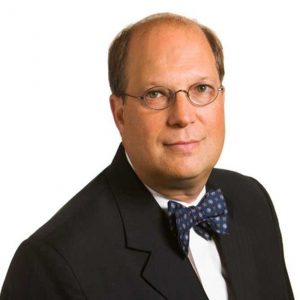 Paul Rosenzweig is an accomplished writer and speaker with a national reputation in cyber security and homeland security. Mr. Rosenzweig is the founder of Red Branch Consulting PLLC, a homeland security consulting company, and a Senior Advisor to The Chertoff Group. Mr. Rosenzweig formerly served as Deputy Assistant Secretary for Policy in the Department of Homeland Security. He is a Professorial Lecturer in Law at George Washington University and a Visiting Fellow at The Heritage Foundation. He is an advisor to and former member of the American Bar Association Standing Committee on Law and National Security and a Contributing Editor of the Lawfare blog. In 2011 he was a Carnegie Fellow in National Security Journalism at the Medill School of Journalism, Northwestern University, where he now serves as an Adjunct Lecturer. Mr. Rosenzweig is a cum laude graduate of the University of Chicago Law School. He is the author of Cyber Warfare: How Conflicts in Cyberspace are Challenging America and Changing the World and of two video lecture series from The Great Courses, Thinking About Cybersecurity: From Cyber Crime to Cyber Warfare and The Surveillance State: Big Data, Freedom, and You. He is the coauthor (with James Jay Carafano) of Winning the Long War: Lessons from the Cold War for Defeating Terrorism and Preserving Freedom and co-editor (with Timothy McNulty and Ellen Shearer) of two books, Whistleblowers, Leaks and the Media: The First Amendment and National Security, and National Security Law in the News: A Guide for Journalists, Scholars, and Policymakers. He is also a member of the Literary Society of Washington.
Paul Rosenzweig is an accomplished writer and speaker with a national reputation in cyber security and homeland security. Mr. Rosenzweig is the founder of Red Branch Consulting PLLC, a homeland security consulting company, and a Senior Advisor to The Chertoff Group. Mr. Rosenzweig formerly served as Deputy Assistant Secretary for Policy in the Department of Homeland Security. He is a Professorial Lecturer in Law at George Washington University and a Visiting Fellow at The Heritage Foundation. He is an advisor to and former member of the American Bar Association Standing Committee on Law and National Security and a Contributing Editor of the Lawfare blog. In 2011 he was a Carnegie Fellow in National Security Journalism at the Medill School of Journalism, Northwestern University, where he now serves as an Adjunct Lecturer. Mr. Rosenzweig is a cum laude graduate of the University of Chicago Law School. He is the author of Cyber Warfare: How Conflicts in Cyberspace are Challenging America and Changing the World and of two video lecture series from The Great Courses, Thinking About Cybersecurity: From Cyber Crime to Cyber Warfare and The Surveillance State: Big Data, Freedom, and You. He is the coauthor (with James Jay Carafano) of Winning the Long War: Lessons from the Cold War for Defeating Terrorism and Preserving Freedom and co-editor (with Timothy McNulty and Ellen Shearer) of two books, Whistleblowers, Leaks and the Media: The First Amendment and National Security, and National Security Law in the News: A Guide for Journalists, Scholars, and Policymakers. He is also a member of the Literary Society of Washington.
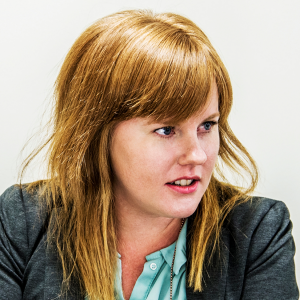 Amie Stepanovich works to ensure that laws and policies on surveillance and cybersecurity recognize and respect human rights. At Access Now, Amie manages and develops the organization’s U.S. policy and leads global projects at the intersection of human rights and government surveillance. Previously, Amie was the Director of the Domestic Surveillance Project at the Electronic Privacy Information Center, where she testified in hearings in both the Senate and the House of Representatives, as well as in State legislatures. Amie is a board member of the Internet Education Foundation. She was a liaison to the American Bar Association’s Cybersecurity Working Group and co-chaired the 2014 Computers, Freedom, and Privacy Conference. Amie was named as a Privacy Ambassador by the Information and Privacy Commissioner of Ontario, Canada and was recognized in 2014 as one of Forbes magazine’s 30 under 30 leaders in Law and Policy. She has a J.D. from New York Law School, and a B.S. from the Florida State University.
Amie Stepanovich works to ensure that laws and policies on surveillance and cybersecurity recognize and respect human rights. At Access Now, Amie manages and develops the organization’s U.S. policy and leads global projects at the intersection of human rights and government surveillance. Previously, Amie was the Director of the Domestic Surveillance Project at the Electronic Privacy Information Center, where she testified in hearings in both the Senate and the House of Representatives, as well as in State legislatures. Amie is a board member of the Internet Education Foundation. She was a liaison to the American Bar Association’s Cybersecurity Working Group and co-chaired the 2014 Computers, Freedom, and Privacy Conference. Amie was named as a Privacy Ambassador by the Information and Privacy Commissioner of Ontario, Canada and was recognized in 2014 as one of Forbes magazine’s 30 under 30 leaders in Law and Policy. She has a J.D. from New York Law School, and a B.S. from the Florida State University.
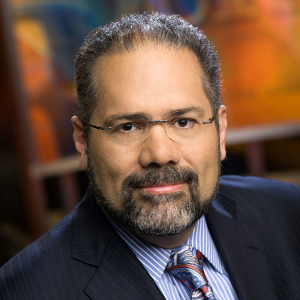 Ray Suarez has had a 40-year career in print, radio, and television news. He was most recently the host of the daily news program Inside Story on Al Jazeera America. Before that Suarez was Chief National Correspondent for the PBS NewsHour. He came to PBS from NPR, where he was the host of Talk of the Nation. He has contributed writing to many books, and is the author of three, most recently Latino Americans: The 500-Year Legacy That Shaped a Nation. Suarez’ journalism has been recognized with two DuPont-Columbia Silver Batons, the National Council of La Raza’s Ruben Salazar Award, and UCLA’s Public Policy Leadership Award for his reporting on urban America. In autumn 2017, he will become the John J. McCloy Visiting Professor of American Studies at Amherst College.
Ray Suarez has had a 40-year career in print, radio, and television news. He was most recently the host of the daily news program Inside Story on Al Jazeera America. Before that Suarez was Chief National Correspondent for the PBS NewsHour. He came to PBS from NPR, where he was the host of Talk of the Nation. He has contributed writing to many books, and is the author of three, most recently Latino Americans: The 500-Year Legacy That Shaped a Nation. Suarez’ journalism has been recognized with two DuPont-Columbia Silver Batons, the National Council of La Raza’s Ruben Salazar Award, and UCLA’s Public Policy Leadership Award for his reporting on urban America. In autumn 2017, he will become the John J. McCloy Visiting Professor of American Studies at Amherst College.
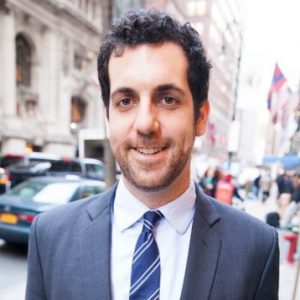 Scott Warren is the Chief Executive Officer of Generation Citizen. He co-founded the organization at Brown University with fellow student Anna Ninan during their senior year. He has worked the last seven years to build up GC’s programming and expand action civics throughout the country. Scott’s passion for the importance of youth political engagement stems from his experience growing up abroad. After his father joined the State Department, Scott lived throughout Latin America and Africa, learning about diverse cultures and peoples. In 2002, Scott served as an observer in the first truly democratic elections in Kenya’s history, where he began to recognize the transformative potential of democracy. He also witnessed a coup in Ecuador in 2005, and met with opposition members during run-off elections in Zimbabwe in 2008. During college he served as the Student Director of STAND, a national student anti-genocide coalition. STAND worked with over 800 high school and college chapters to advocate US action to prevent and end genocide. Scott also helped lead successful campaigns to divest Brown University, the City of Providence, and the State of Rhode Island from companies conducting business in Sudan. Scott was named an Echoing Green Fellow in 2010, and a Draper Richards Kaplan Fellow in 2012. He continues to write on subjects ranging youth political engagement to African politic to sports, and has been published in the Christian Science Monitor, New York Daily News, Huffington Post, San Diego Union Tribune, Sports Illustrated, Philadelphia Inquirer, and the Providence Journal.
Scott Warren is the Chief Executive Officer of Generation Citizen. He co-founded the organization at Brown University with fellow student Anna Ninan during their senior year. He has worked the last seven years to build up GC’s programming and expand action civics throughout the country. Scott’s passion for the importance of youth political engagement stems from his experience growing up abroad. After his father joined the State Department, Scott lived throughout Latin America and Africa, learning about diverse cultures and peoples. In 2002, Scott served as an observer in the first truly democratic elections in Kenya’s history, where he began to recognize the transformative potential of democracy. He also witnessed a coup in Ecuador in 2005, and met with opposition members during run-off elections in Zimbabwe in 2008. During college he served as the Student Director of STAND, a national student anti-genocide coalition. STAND worked with over 800 high school and college chapters to advocate US action to prevent and end genocide. Scott also helped lead successful campaigns to divest Brown University, the City of Providence, and the State of Rhode Island from companies conducting business in Sudan. Scott was named an Echoing Green Fellow in 2010, and a Draper Richards Kaplan Fellow in 2012. He continues to write on subjects ranging youth political engagement to African politic to sports, and has been published in the Christian Science Monitor, New York Daily News, Huffington Post, San Diego Union Tribune, Sports Illustrated, Philadelphia Inquirer, and the Providence Journal.
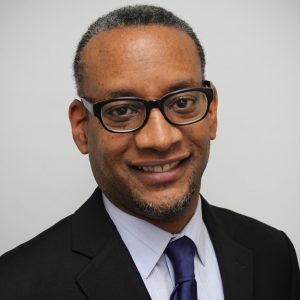 Vincent Warren is a leading expert on racial justice, criminal justice and discriminatory policing. He is the executive director of the Center for Constitutional Rights (CCR). He oversees CCR’s groundbreaking litigation and advocacy work, which uses international and domestic law to challenge human rights abuses, including racial, gender and LGBT injustice. Under his leadership, CCR successfully challenged the NYPD’s Stop-and-Frisk policy, ended long-term solitary confinement in California’s Pelican Bay Prison, and the torture of prisoners in Abu Ghraib prison. Among many other things, CCR is currently challenging the profiling of Muslims, the persecution of LGBTI people in Uganda and developing strategic defenses against immigration raids, as well as providing legal and policy support to Black organizers in the Movement for Black Lives. Previously, Vince was involved in monitoring South Africa’s historic Truth and Reconciliation Commission hearings, was a Senior Staff Attorney at the ACLU and a criminal defense attorney for the Legal Aid Society in Brooklyn. He is a graduate of Haverford College and Rutgers School of Law.
Vincent Warren is a leading expert on racial justice, criminal justice and discriminatory policing. He is the executive director of the Center for Constitutional Rights (CCR). He oversees CCR’s groundbreaking litigation and advocacy work, which uses international and domestic law to challenge human rights abuses, including racial, gender and LGBT injustice. Under his leadership, CCR successfully challenged the NYPD’s Stop-and-Frisk policy, ended long-term solitary confinement in California’s Pelican Bay Prison, and the torture of prisoners in Abu Ghraib prison. Among many other things, CCR is currently challenging the profiling of Muslims, the persecution of LGBTI people in Uganda and developing strategic defenses against immigration raids, as well as providing legal and policy support to Black organizers in the Movement for Black Lives. Previously, Vince was involved in monitoring South Africa’s historic Truth and Reconciliation Commission hearings, was a Senior Staff Attorney at the ACLU and a criminal defense attorney for the Legal Aid Society in Brooklyn. He is a graduate of Haverford College and Rutgers School of Law.
About the National Archives
The National Archives and Records Administration is an independent federal agency that serves American democracy by safeguarding and preserving the records of our Government, so people can discover, use, and learn from this documentary heritage. The National Archives ensures continuing access to the essential documentation of the rights of American citizens and the actions of their government. From the Declaration of Independence to accounts of ordinary Americans, the holdings of the National Archives directly touch the lives of millions of people. The agency supports democracy, promotes civic education, and facilitates historical understanding of our national experience. The National Archives carries out its mission through a nationwide network of archives, records centers, and Presidential Libraries, and on the Internet at: archives.gov.
About the National Archives Foundation
The National Archives Foundation is an independent nonprofit that increases public awareness of the National Archives, inspires a deeper appreciation of our country’s heritage, and encourages citizen engagement in our democracy. The Foundation generates financial and creative support for National Archives exhibitions, public programs, and educational initiatives, introducing America’s records to people around the U.S. and the world. Learn more at: archivesfoundation.org.
The “National Conversation on Rights and Justice” in Washington, DC is presented in part by AT&T, Ford Foundation, Seedlings Foundation, Carnegie Corporation, and the National Archives Foundation.







